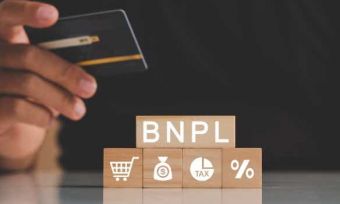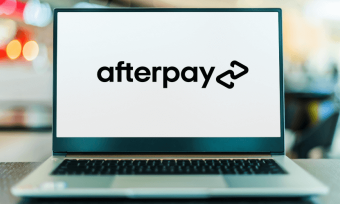Pay in 4 is PayPal’s buy now pay later service. Find out how it works and how it stacks up against Afterpay.
What is PayPal Pay in 4?
It is essentially a buy now pay later service that allows you to purchase an item without paying for it in full upfront. Instead, you pay it off in four equal, interest-free instalments.
How does PayPal Pay in 4 work?
PayPal Pay in 4 lets you split eligible purchases, from $30 to $2,000, over four equal, interest-free instalments. The first payment is made at the time of purchase and the remaining three will be made with automatic repayments drawn every two weeks. Repayments are made automatically from your PayPal account using the payment method you have selected.
For example, let’s say you purchase an item for $500, you will pay $125 upfront and then make $125 repayments the following three fortnights. So, essentially you have to pay for the purchase in six weeks. Afterpay is set up this way as well, while other buy now pay later platforms may work differently.
To use Pay in 4 you simply choose PayPal at the checkout when you shop online. If the transaction is eligible for Pay in 4, you’ll see that as one of the available payment methods. Simply apply for a Pay in 4 plan and you’ll get an instant decision. PayPal may carry out a credit check when you apply. If your application is approved you can finish checking out. If it’s declined you can still use PayPal to check out – just not as a Pay in 4 transaction.
Some businesses may present PayPal Pay in 4 as a distinct payment option on their website.
You can have multiple Pay in 4 plans at the same time. According to the PayPal website, as long as you see the option for Pay in 4 at checkout, you can choose a new Pay in 4 plan.
PayPal’s Buyer Protection will also apply for transactions made using PayPal Pay in 4, which means that if a product does not arrive PayPal may refund the full purchase price, including delivery.
Do I need a credit card to use PayPal Pay in 4?
No, you don’t need a credit card. PayPal lets you link a debit card or a bank account to your PayPal wallet and you can arrange for the payments to come out of your nominated account.
Does PayPal Pay in 4 charge late fees?
No, unlike most other buy now pay later services PayPal Pay in 4 doesn’t charge any late fees.
How much does PayPal Pay in 4 cost?
It’s essentially a free service. There is no interest payable and you won’t have to pay a late fee if you miss your repayments. The only fees you might be charged by PayPal are currency conversion fees on international purchases, if applicable.
What happens if I miss a Pay in 4 payment?
If you know you won’t be able to make a repayment, it’s a good idea to contact PayPal and let them know in advance.
If you miss a payment, you may hear from PayPal’s in-house collections team. PayPal warns that “missing a payment could have adverse consequences, including restricting your PayPal account, our taking legal action against you, and/or reporting the default information to a Credit Reporting Body which may impact your ability to obtain, and the cost of, further credit.”
Does PayPal Pay in 4 affect my credit score?
Yes, using PayPal Pay in 4 can affect your credit score. There are two main ways it could do this. Firstly, when you apply, PayPal may carry out a credit check. It doesn’t do this with every customer but if it does it will leave a mark on your credit file. A credit check is considered a “hard” inquiry and could take between five and 10 points from your credit score.
Your credit score may also take a hit if you miss a repayment and this is likely to be more detrimental than the credit inquiry. According to PayPal, if you miss a repayment your credit rating and credit score “may be affected in a way that impacts your ability to obtain further credit”.
How does PayPal Pay in 4 compare to Afterpay?
PayPal Pay in 4 works in much the same way as Afterpay by allowing purchases to be repaid in four equal, interest-free instalments.
The key difference is that Afterpay charges a late fee of $10 on a missed repayment and a further $7 if the payment remains unpaid seven days after the due date. So, if you make a purchase and pay it off on time both Afterpay and PayPal Pay in 4 will cost you nothing. If, however, you miss a repayment then Afterpay will hit you with a late fee.
Another difference is that, at this stage, Afterpay doesn’t do credit checks or report late payments so your credit score won’t be affected by using Afterpay. This will change in the future, though, as the government announced earlier this year that it intends to regulate the buy now, pay later industry under the National Consumer Credit Protection Act. The crackdown means buy now pay later providers will have to perform hard credit checks on customers using their service.
Finally, PayPal Pay in 4 can only be used online while Afterpay can be used in a selection of physical stores. You need an Afterpay Card to be able to shop in-store.
As with any form of debt, it’s important to take care when using buy now pay later services and not to let things spiral out of control. According to a study by Good Shepherd Australia last year, 73% of financial counsellors had clients who have missed essential payments or cut back on essential items just to make repayments on buy now pay later loans. If you are struggling to make ends meet or having trouble managing your debts, then consider reaching out to the National Debt Helpline for support.
Cover image source: William Potter/Shutterstock.com
This content was reviewed by Editor-at-Large Effie Zahos as part of our fact-checking process.







Share this article